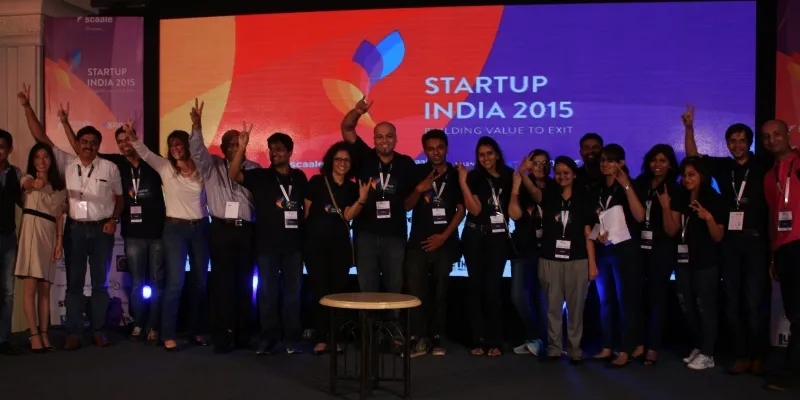What happens when investors, accelerators and entrepreneurs from 17 different countries meet
“What’s happening in India started 15 to 20 years back in UK, and close to 60 years back in the Silicon Valley,” said David Fogel, Head of Acceleration and Deputy Director Wayra UK, at Startup India 2015 at Goa organised by the Scaale Group. The burgeoning startup ecosystem and a growing visibility of the Indian ecosystem and market on a global level was what caught everyone’s attention. Some of the key takeaways of the first edition of the Startup India 2015 were:

The Indian Startup ecosystem is taking off
There was a common sentiment that the Indian startup ecosystem today is taking off, while not yet booming. “But the pace at which it’s growing is simply exponential. No other ecosystem saw such a fast paced growth in such a short time,” says Marta Emerson, Vice President, Scaale Group. Also, many believed that Indian entrepreneurs have a lot to offer to the world. Close to one-third of the startups in Silicon Valley are led by entrepreneurs of Indian origin.
Strong focus on technology but some might miss the key
A common sentiment among the investors and accelerators across borders was that the Indian startup pitches unlike the ones in Europe focus strongly on technology and how that works. While this showed passion, many believe that it is important to bring in a mix of how the product works along with what problem it solves, especially, if this involves a short three or five minutes of an elevated pitch.
Thinking global from day one
As mentioned earlier, the quality of the pitches by startups needs to focus on how the organisation and the startup intends to scale. As the Indian subcontinent in itself has so many variables and different markets within, very few startups, according to the European investors think global. “In Israel, we have a smaller geography, so when we start something, our focus is on how global the organisation or product can be,” adds David. Nevertheless, this needs to be done simultaneously. Startups need to think of capturing the Indian market and also look at how they can scale.
Focussing on smart money rather than just on valuations
While the Indian ecosystem is producing its set of unicorns and companies with valuations that touch billions of dollars, there needs be a focus on smart money. Explaining further, the investors said that every round of investment brings its own set of networks and a bank of knowledge. And it is pertinent that entrepreneurs and startups look at the round of investment for that. “There are organisations that focus on funding, but not what comes along with it. Angels, VC’s and accelerators bring in knowledge, network and mentorship that startups can use effectively to scale up,” adds Paulo Andrez, President Emeritus EBAN.
Collaboration is the key
With the growing number of startups that are mushrooming in different parts of the globe, accelerators, angel investors and VC’s believe instead of competing with one another, the ecosystem can thrive better with collaboration. This especially is true in the case of several me-toos. If the products that are being developed are complimentary and work towards solving a bigger problem, then it’s better that these startups join hands.
This, however doesn’t mean that there should be no competition. “The competition slide in your pitch presentation is important but so is your differentiator slide,” says Sandeep Aneja, Founder and Managing Director, Kaizen Private Equity.
David adds that it just isn’t possible that your product has no competition; there must be some basic level of competition that you’re looking to improve on.
Government and private partnerships
Paulo adds that the Indian startup ecosystem can significantly grow with a collaborative effort with government and private partnerships. He adds that in European countries, the policies and grants ensure that the ecosystem thrives and newer innovations are encouraged. While in India there are pockets like Kerala, Tamil Nadu and Goa working towards helping startups in the region, there needs to be a deeper push by the government to help innovations.
Emerging sectors on a global level
Some of the top emerging sectors that one needs to watch out for include Healthtech, Fintech and Edutech. These, the investors said are sectors that are traditional and are open for disruption by technology and newer age innovations. With the use of IoT and AI, many believe that behavioural patterns and data analytics can change the game.







